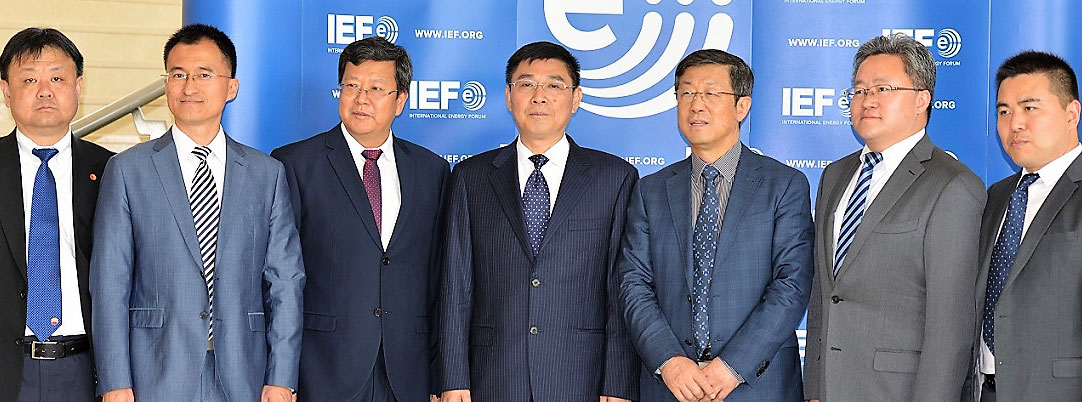IEF Lecture: Belt and Road Initiative and the Role of Gas in China's Energy Transition
Riyadh, Saudi Arabia
The Secretary General of the International Energy Forum, Dr Sun Xiansheng was pleased to host Dr Zhang Hualin, Director General, Policy Research Office, China National Petroleum Corporation (CNPC) as the Head of the CNPC Delegation presenting on the China “One Belt One Road” Initiative (OBOR) and the Role of Natural Gas in China’s Energy Transition at the IEF Headquarters in Riyadh on 8 May 2018.
CNPC’s presentation on “The Belt and Road”: Oil and Gas Cooperation Basics”, provided an overview of OBOR including CNPC’s role in the project ‘s scale and breadth that involves 68+ countries with a combined population of 4.4 billion. The OBOR initiative revolves around 3 Principles and 5 Priorities: The Principle of Joint Discussion, Co-construction and Sharing with Priorities focussed on Policy Coordination, Facilities Connectivity, Unimpeded Trade, Financial Integration, and People-to-People Bonds. The substance of the presentation focused on CNPC’s role in managing risks and opportunities in the energy sector dimension of the 5 overseas oil and gas cooperation areas of the OBOR initiative by implementing these principles and priorities.
CNPC’s presentation on “The Role of Gas in China’s Energy Transition” and focussed on natural gas demand-supply dynamics including China’s growing natural gas consumption and domestic production. CNPC baseline projection for natural gas demand to grow by 8.6% between 2016-2020 and 4.3% between 2020-2030 reaching 290 billion cubic meters (bcm) and 440 bcm in 2020 and 2040 respectively. Excellence in natural gas supply chain management must be achieved by the 5As of Availability, Accessibility, Assurance, Affordability and Accountability as accelerated urbanisation and clean air requirements demand.
For China’s gas industry to enter a period of strategic opportunity and rapid development price and infrastructure hurdles need to be overcome according to CNPC. Alongside China’s increasing reliance on international energy markets for oil, gas and coal imports – for which foreign dependencies reached 68%, 39% and 9.5% respectively in 2017 – the energy transition challenges China faces relate to a coal dominated and carbon intensive industry. To overcome these challenges, China’s 13th Five Year Energy Plan promotes expansion of the natural gas market, scaling up renewables as well as deploying clean and ultra-efficient technologies, while reducing excess coal capacity.







